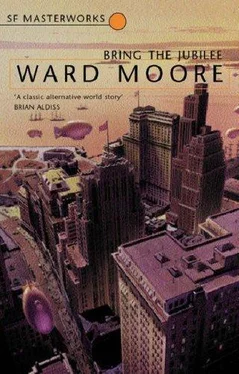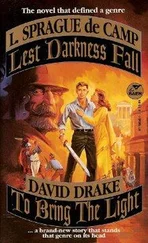He expected me to work, but he was far from a hard or inconsiderate master. In 1938-44, when the country was being ground deeper into colonialism, there were few employers so lenient. I read much, generally when I pleased, and despite his jeers at learning in the abstract he encouraged me, even going to the length, if a particular book was not to be found in his considerable stock, of letting me get it from one of his competitors, to be written up against his account.
Nor was he scrupulous about the time I took on his errands. I continued to ramble and sightsee the city much as though I had nothing else to do. And if, from time to time, I discovered there were girls in New York who didn't look too unkindly on a tall youth even though he still carried some of the rustic air of Wappinger Falls, he never questioned why the walk of half a mile took me a couple of hours.
True, he kept to his original promise never to pay me wages, but he often handed me coins for pocket money, evidently satisfied I wasn't stealing, and he replaced my makeshift wardrobe with worn but decent clothing.
He had not exaggerated the possibilities of the books surrounding me. His brief warning, “—you can learn nothing,” was lost on me. I suppose a different temperament might have become surfeited with paper and print; I can only say I wasn't. I nibbled, tasted, gobbled books. After the store was shut I hooked a student lamp to the nearest gas jet by means of a long tube, and lying on my pallet with a dozen volumes handy, I read till I was no longer able to keep my eyes open or understand the words. Often I woke in the morning to find the light still burning and my fingers holding the pages open.
I think one of the first books to influence me strongly was the monumental Causes of American Decline and Decay by the always popular expatriate historian, Henry Adams. I was particularly impressed by the famous passage in which he reproves the “stay-at-home” Bostonian essayists, William and Henry James, for their quixotic sacrifice and espousal of a long-lost cause. History, said Sir Henry, who had renounced his United States citizenship and been knighted by William V, history is never directed or diverted by well-intentioned individuals; it is the product of forces with geographical, not moral roots.
Possibly the learned expatriate was right, but my instinctive sympathies lay with the Jameses, in spite of the fact that I had not found their books enjoyable. This was due at least partly to the fact that the small editions were badly printed and marred, at least so foreign critics claimed, by an excessive use of Yankee colloquialisms, consciously employed to demonstrate patriotism and disdain of imported elegance. For some reason, obscure to me then, I did not mention Adams to Tyss, though I usually turned to him with each of my fresh discoveries. When he came upon me with an open book he would glance at the running title over my shoulder and begin talking, either of the particular work or of its topic. What he had to say gave me an insight I might otherwise have missed, and turned me to other writers, other aspects. He respected no authority simply because it was acclaimed or established; he prodded me to examine every statement, every hypothesis no matter how commonly accepted.
Early in my employment I was attracted to a large framed parchment he kept hanging, slightly askew and highly attractive to dust, over his type case. It was simply but beautifully printed in 16 point Baskerville; I knew without being told that he had set it himself:
The Body of
Benjamin Franklin
Printer
Like the Cover of an Old Book
Stripped of Its Lettering and Gilding
Lies Here
Food for Worms.
But the Work Shall Not Be Lost
For It Will, as He Believed,
Come Forth Again
In a New and Better Edition
Revised & Corrected
By
The Author.
When he caught me admiring it Tyss laughed. “Felicitous, isn't it, Hodgins? But a lie, a perverse and probably hypocritical lie. There is no author; the book of life is simply a mess of pied type, a tale told by an idiot, full of sound and fury, signifying nothing. There is no plan, no synopsis to be filled in with pious hopes or sanctimonious actions. There is nothing but a vast emptiness in the universe.”
“The other day you told me we admired the devil for rebelling against a plan.”
He grinned. “So you expect consistency instead of truth from me, Hodgins. There is no plan, authored by a mind; it is this no-plan against which Lucifer fought. But there is a plan, too, a mindless plan, which accounts for all our acts.”
I had been reading an obscure Irish theologian, a Protestant curate of some forsaken parish, so ill-esteemed he had been forced to publish his sermons himself, named George B. Shaw, and I had been impressed by his forceful style. I quoted him to Tyss, perhaps as much to preen myself as to counter his argument.
“Nonsense. I've seen the good parson's book with its eighteenth-century logic and its quaint rationalism, and know it for a waste of ink and paper. Man does not think; he only thinks he thinks. An automaton, he responds to external stimuli; he cannot order his thought.”
“You mean that there's no free will? Not even a marginal minimum of choice?”
“Exactly. The whole thing is an illusion. We do what we do because someone else has done what he did; he did it because still another someone did what he did. Every action is the rigid result of another action.”
“But there must have been a beginning,” I objected. “And if there was a beginning, choice existed if only for that split second. And if choice exists once it can exist again.” “You have the makings of a metaphysician, Hodgins,” he said witheringly, for metaphysics was one of the most despised words in his vocabulary. “The reasoning is infantile. Answering you and the Reverend Shaw on your own level, I could say that time is a convention and that all events occur simultaneously. Or if I grant its dimension I can ask, What makes you think time is a simple straight line running flatly through eternity? Why do you assume that time isn't curved? Can you conceive of its end? Can you really imagine its beginning? Of course not; then why aren't both the same? The serpent with its tail in its mouth?”
“You mean we not only play a prepared script but repeat the identical lines over and over and over for infinity? There's no heaven in your cosmos, only an unimaginable, never-ending hell.”
He shrugged his shoulders. “That you should spout emotional apologetics at me is part of what you call the script, Hodgins. You didn't select the words nor speak them voluntarily. They were called into existence by what I said, which in turn was mere response to what went before.”
Weakly I was forced back to a more elementary attack. “You don't act in accordance with your own conviction.”
He snorted. “A thoughtless remark, excusable only because automatic. How could I act differently? Like you, I am a prisoner of stimuli.”
“How pointless to risk ruin and imprisonment as a member of the Grand Army when no one can change what's predestined.”
“Pointless or not, emotions and reflections are responses just as much as actions. I can no more help engaging myself in the underground than I can help breathing, or my heart beating, or dying when the time comes. Nothing, they say, is certain but death and taxes; actually everything is certain. Everything,” he repeated firmly.
I went back to sorting some pamphlets which were to be sold for wastepaper, shaking my head. His theory was unassailable; every attack was discounted by the very nature of the thesis. That it was false I didn't doubt; its impregnability made its falseness still more terrifying.
There were fully as many imaginary discussions with Tyss as real ones. Yet even in these disembodied arguments I could gain no advantage. Why do you look back on the War of Southron Independence with regret for what might have been, if no might-have-been is possible? I asked him mentally, knowing his answer, I cannot help myself, was no answer at all.
Читать дальше












